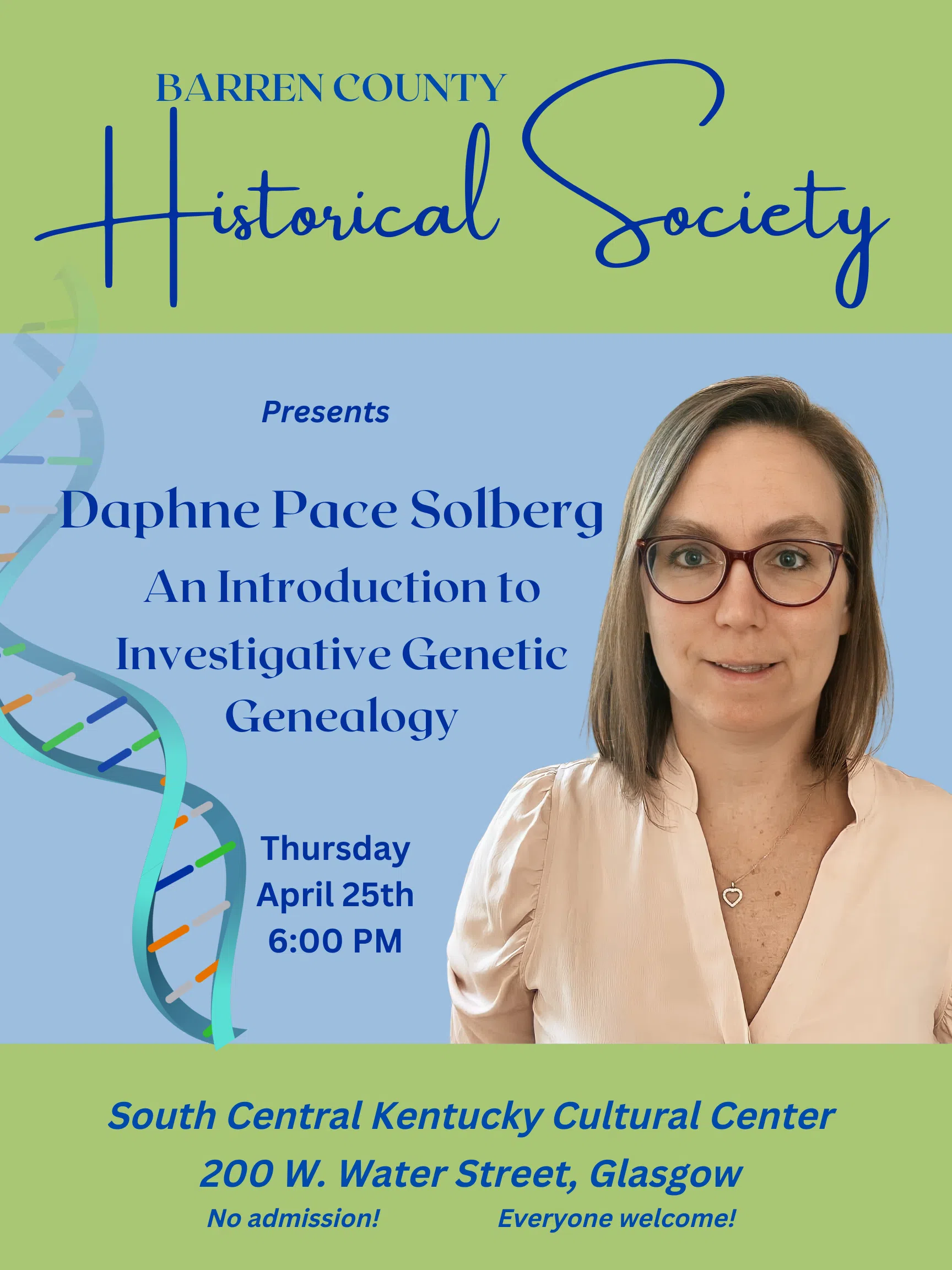KATLAN THOMERSON
On April 25, Daphne Pace Solberg, an investigative genetic genealogist, abbreviated as IGG, will join the Barren County Historical Society for their monthly meeting at the South Central Kentucky Cultural Center at 6 p.m.
During the meeting, she will explain what IGG is while highlighting three unsolved “Doe” cases in Barren County to help her audience understand how IGG is used to solve cases.
“These are examples of local cases that could be solved by IGG,” Solberg said. “These people are still unidentified after all of these years. One of the goals of IGGs is to give their names back to them and return them to their family so that they can have a proper burial.”
Solberg earned her title by completing a 15-week online program through Ramapo College of New Jersey in 2023. In addition to being a guest speaker at various events, Solberg is a volunteer for the DNA Doe Project and is on the board of directors for a new start-up non-profit called INVgene Initiative.
“The connection between IGG work and the Historical society is the genealogy. The IGG work is being done by regular people who have an interest in genealogy,” Solberg said.
Investigative genetic genealogy, also known as forensic genetic genealogy, is a relatively new field that combines genetics and genealogy to solve cold cases, identify unidentified remains, and shed light on mysteries that have long baffled investigators.
How Investigative Genetic Genealogy Works
- Genetic genealogy experts work with law enforcement agencies to find cases involving unidentified people.
- After receiving permission to work on a case from law enforcement, IGGs begin the investigative process.
- Public Genealogy Databases: IGG relies on publicly accessible genealogy databases like GEDMatch and FamilyTreeDNA. Users upload their genetic data from direct-to-consumer companies, allowing them to identify relatives who have tested at other companies.
- Identity-by-Descent (IBD): IGG analyzes segments of DNA shared between individuals, indicating common ancestors. Data from GEDMatch, which includes profiles from over 1.2 million people, can identify third cousins or closer in more than 90% of the population.
- Demographic Identifiers: Alongside genetic data, demographic information such as age, gender, and residence help identify potential suspects or victims.
- After receiving the DNA information, IGGs begin assembling a family tree. Genetic genealogy experts assemble family trees by tracing connections and identifying potential leads.
Solberg’s work in IGG stems from her interest in her family history and her love of true crime podcasts. She’s excited to watch how the field grows over time and hopes to gain a job as an IGG.
“Because the field is so new there aren’t a lot of paid full-time positions yet, but we’re starting to see more and more available,” Solberg began. “I think that the law enforcement community has been a little slow in accepting this new technique and I think that’s one of the reasons why it’s not progressing as quickly as some people might have liked it the beginning. But my goal is to find a full-time position.”

Comments